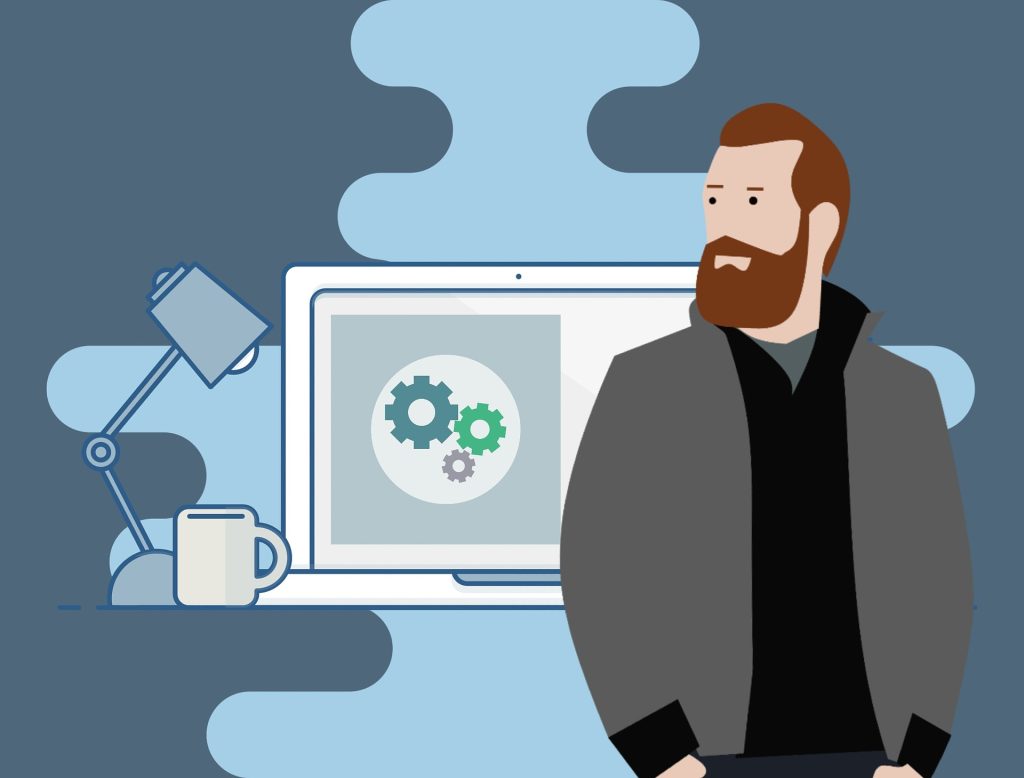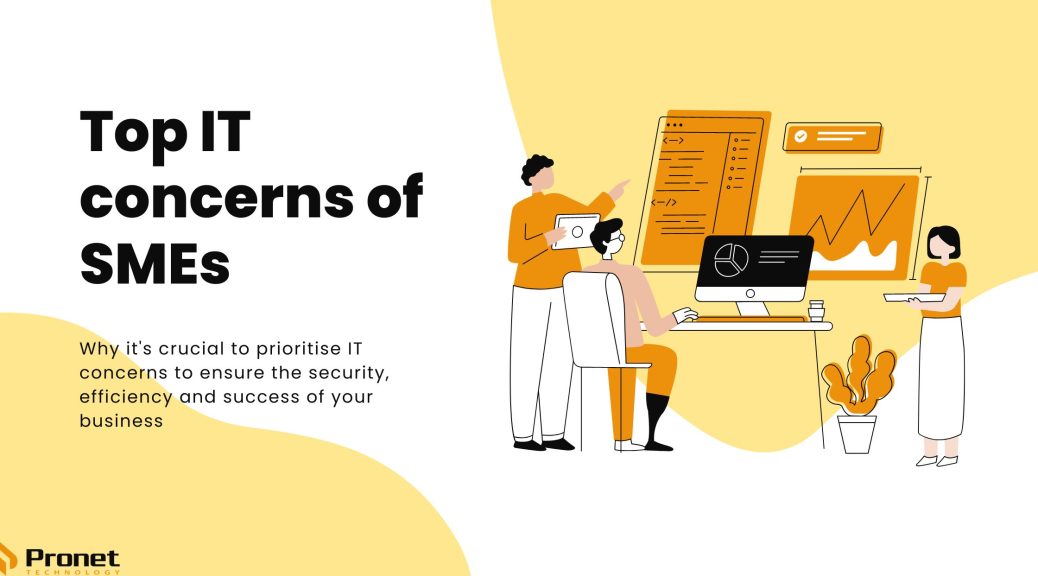The Top IT Concerns of SMEs

Have you ever asked yourself, ‘What are the top IT concerns I should be worried about for my business?’ Small and medium-sized enterprises (SMEs) face a variety of IT concerns that can impact their operations, productivity and longevity of the company. If you’re growing your business or are at the stage of risk reduction planning, here are some of the top IT concerns we have found that SMEs face.
Cyber Security
If you watch the news or have heard about the data breaches of Optus, Latitude, Medibank, Crown and Meriton, you should understand why Cyber Security is such an issue you need to start becoming proactive about. Cyberattacks can be devastating for your business, resulting in data breaches, financial losses and damage to your reputation. If future customers find out your company has had a security breach, and then you handled it poorly, quite frankly, why would they choose your business over another? SMEs must have a comprehensive Cyber Security strategy that includes employee training, firewalls, antivirus software, data encryption, regular backups and an array of cybersecurity measures.
Data Management
Small and medium-sized businesses generate and handle large amounts of data, which can be difficult to manage and secure. Ensuring the integrity and availability of data is crucial to maintaining business operations. Data loss can occur due to a variety of reasons, such as natural disasters, hardware failure or cyberattacks. SMEs should have a reliable data backup and disaster recovery plan in place to minimise downtime and data loss.

Cloud Computing
Many businesses are turning to cloud computing to reduce costs and improve efficiency. Moving data to the cloud can also introduce new security risks and challenges. Cloud computing can provide SMEs with greater flexibility, scalability and cost savings, however, it’s essential to choose a reputable cloud provider and implement strong security measures to protect sensitive data. So, if you’re company has this in the plans, make sure to choose an IT service provider who is knowledgeable in moving your business to the cloud.
IT Infrastructure
SMEs may not have the resources to invest in robust IT infrastructure, which can lead to slow systems, downtime and lost productivity. Your company needs to ensure your IT infrastructure is up to date and can support your business needs. This includes hardware such as servers and routers as well as software such as operating systems, productivity tools and Cyber Security solutions.
Bring Your Own Device
Many companies allow employees to use their personal devices for work, which can increase productivity but also pose security risks. SMEs should have a clear personal device policy that includes security measures such as device management, data encryption and access controls. If devices are needed in your business, consider purchasing work-specific devices to monitor what is accessed and to reduce the risk of malware infecting your business.

IT Support
Like most small to medium-sized companies, your business may not have dedicated IT staff, which can make it difficult to provide adequate support and troubleshooting for technical issues. You might even have a full-time employee but are finding they don’t have the knowledge to fix the issue at hand.
One of our clients described an issue they had like:
“It was almost like an insurmountable mountain we had and nobody could even work their way around how we were going to work our way out of it.”
As a business owner, you’re an expert in your field and just want to get on with your business. There’s a high chance you have no idea how your IT and computers function but you just want them to work, so having the added stress of IT issues without adequate support is a major concern that you need to address.
Compliance
SMEs must comply with a variety of regulations, including data privacy laws and industry-specific requirements and meeting these standards can be challenging without proper resources and expertise.
SMEs need to comply with regulations, both national and international in our globalised world, such as the General Data Protection Regulation (GDPR), Payment Card Industry Data Security Standard (PCI DSS) and The Privacy Act. Failure to comply with these regulations can result in huge fines and can damage the business’ reputation.
Remote Work
The COVID-19 pandemic has accelerated the trend of remote work, requiring businesses to provide secure remote access to their systems and data. This includes implementing secure virtual private networks (VPNs), two-factor authentication and other security measures. Without proper knowledge and support, this can be incredibly confusing to set up and issues can, and do, quickly arise.
Technology Obsolescence
Technology evolves rapidly and your business may struggle to keep up with the latest advancements. Outdated technology can lead to compatibility issues, security vulnerabilities and reduced productivity working with slower, clunky tech. A key concern might surround learning how new applications and software work, but if you were guaranteed that it would boost your company’s output, you would switch in a heartbeat.
Overall, as a business owner, manager or stakeholder in a business, it has become crucial to prioritise IT concerns to ensure the security, efficiency and success of your business operations. Seeking expert advice and investing in robust technology solutions can help you overcome these challenges and stay ahead of the curve. Working with a reputable and knowledgeable Managed Service Provider (MSP) can give you the peace of mind that these concerns are well taken care of.



